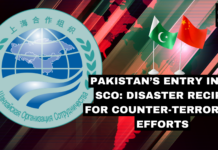The recent assault on the Pakistan naval air base in Turbat, Balochistan, by Baloch insurgents serves as a stark reminder of the deep-seated grievances and resistance prevailing within the region. The Baloch rebellions in Pakistan have been fueled by decades of systemic marginalization, economic exploitation, and cultural suppression by the Pakistani state. Despite repeated calls for autonomy, equality, and justice, the Baloch people have been met with repression and neglect. Faced with the denial of their fundamental rights and the failure of peaceful avenues for change, many Baloch have been left with no choice but to take up arms in defense of their dignity, identity, and freedom. The insurgency represents a desperate struggle to reclaim sovereignty over their land and resources, to resist external exploitation, and to assert their right to self-determination. This attack, coupled with previous incidents, not only highlights Pakistan’s governance failures but also raises questions about China’s economic interests and their implications for regional stability.
WHAT HAPPENED AT THE TURBAT NAVAL BASE?
On March 25th, Baloch insurgents launched an audacious attempt to infiltrate the Pakistan naval air base in Turbat. The naval base holds strategic importance within the China-Pakistan Economic Corridor (CPEC), a comprehensive infrastructure project that spans roads, energy initiatives, and various development ventures. This corridor is a key component of Chinese President Xi Jinping’s ambitious Belt and Road Initiative, aimed at enhancing connectivity and economic cooperation across regions. Despite their efforts, security forces managed to repel the attackers, resulting in the death of all assailants.2 However, the loss of one paramilitary soldier underscores the seriousness of the situation and the challenges faced by security forces in Balochistan.
The Baloch Liberation Army (BLA), a prominent separatist group in Balochistan, claimed responsibility for the assault. This attack is not an isolated incident but rather part of the BLA’s ongoing struggle against what they perceive as Islamabad’s oppressive rule and China’s exploitative economic agenda in the region. The BLA’s actions underscore the simmering discontent and resistance among the Baloch people, who have long been marginalized and oppressed by the Pakistani state. The BLA has been at the forefront of the fight for Baloch rights, autonomy, and freedom in Pakistan. Through a combination of guerrilla warfare, targeted attacks on military and government installations, and international advocacy efforts, the BLA has sought to highlight the grievances of the Baloch people and draw attention to their struggle for self-determination.
The attack on the naval base has broader implications for the China-Pakistan Economic Corridor (CPEC), a flagship project of China’s Belt and Road Initiative. China’s extensive investments in infrastructure projects in Balochistan, particularly the development of the Gwadar port, have been targeted by Baloch insurgents. This attack highlights the security risks associated with CPEC investments and raises concerns about China’s long-term strategy in Pakistan. It underscores the urgent need for both nations to reassess their priorities and policies, prioritizing the well-being and rights of the Baloch people over short-term economic gains.
PAKISTAN’S RESPONSE TO BALOCH INSURGENCY
Pakistan’s response to the Baloch insurgency has been characterized by a combination of denial, repression, and neglect. Instead of addressing the root causes of Baloch grievances, Islamabad has resorted to heavy-handed tactics, including military crackdowns and enforced disappearances. The recent attack is a reflection of Pakistan’s failure to address the legitimate aspirations of the Baloch people and its inability to provide governance and development in the region. Despite decades of Baloch grievances regarding autonomy, economic exploitation, and cultural suppression, Islamabad’s response has been marked by repression, militarization, and denial. Enforced disappearances, extrajudicial killings, and crackdowns on dissent have become commonplace, exacerbating rather than resolving tensions. The lack of meaningful dialogue and inclusive development initiatives has further alienated Baloch communities, perpetuating a cycle of violence and resistance. Pakistan’s failure to acknowledge and address the legitimate aspirations of the Baloch people not only undermines its claims to democracy and justice but also fuels instability and undermines national cohesion.
BRINGING PEACE TO THE REGION
China’s steadfast support for Pakistan’s policies in Balochistan, driven primarily by its economic interests, has come at a cost. The targeting of Chinese assets and personnel by Baloch insurgents, including the recent suicide attack that killed five Chinese nationals and one Pakistani in the country’s northwest Shangla region, underscores the risks associated with China’s investments in the region. China’s myopic focus on economic gains has blinded it to the human rights abuses and security challenges in Balochistan and elsewhere in the country, posing a dilemma for Beijing as it seeks to balance its economic interests with regional stability.
The Baloch insurgency is not merely a law and order issue but a legitimate struggle for rights, autonomy, and justice. Baloch have long been subjected to systemic discrimination, economic exploitation, and cultural marginalization by the Pakistani state. The attack on the naval base is a manifestation of the Balochis’ determination to resist oppression and reclaim their rights. It serves as a wake-up call for both Islamabad and Beijing and highlights the need for Pakistan to address governance failures and respect the rights of the Baloch people, and for China to reconsider its economic interests in the region in light of security risks and human rights concerns.
